Dating violence is a pattern of assaultive and controlling behaviors that one person uses against another in order to gain or maintain power and control in the relationship.
The abuser intentionally behaves in ways that cause fear, degradation and humiliation to control the other person. Forms of abuse can be physical, sexual, emotional and psychological.

Everything about Dating Violence
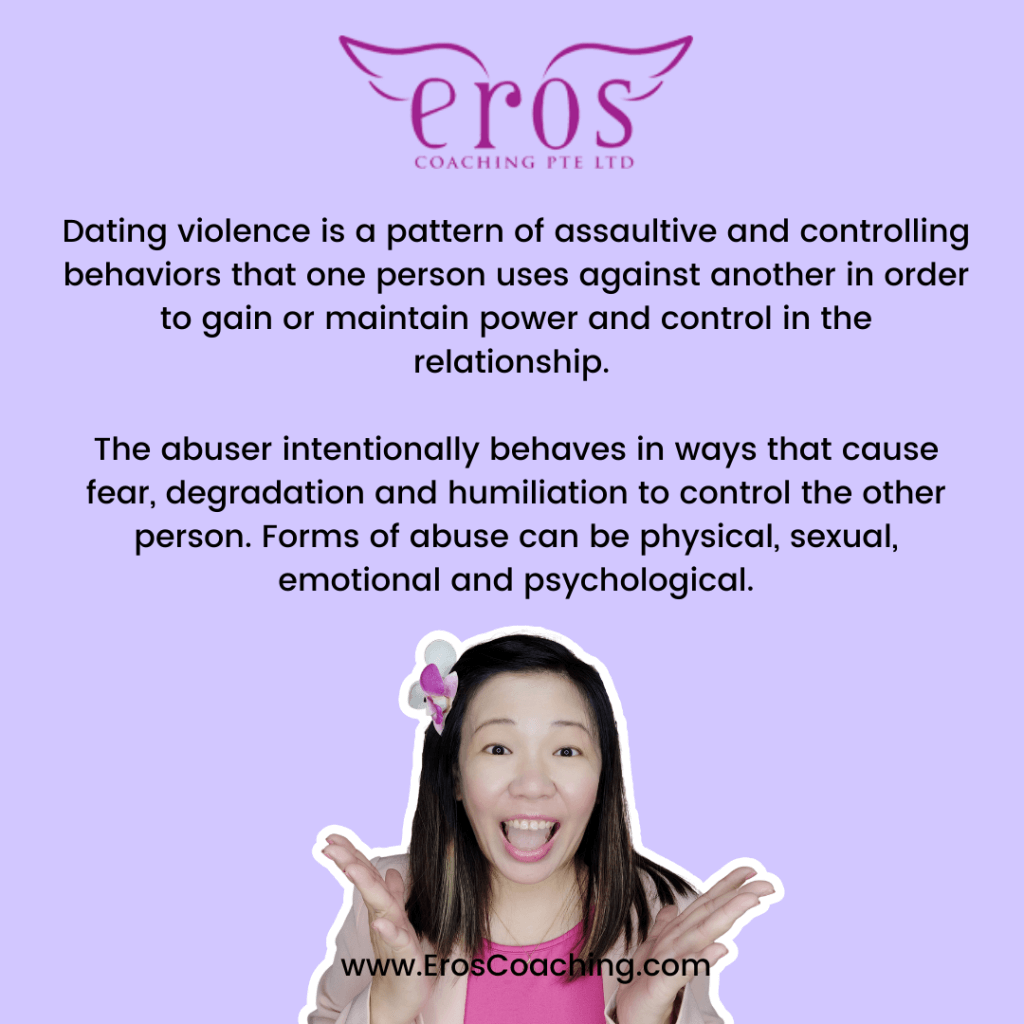
Dating violence is a pattern of assaultive and controlling behaviors that one person uses against another in order to gain or maintain power and control in the relationship.
The abuser intentionally behaves in ways that cause fear, degradation and humiliation to control the other person. Forms of abuse can be physical, sexual, emotional and psychological.
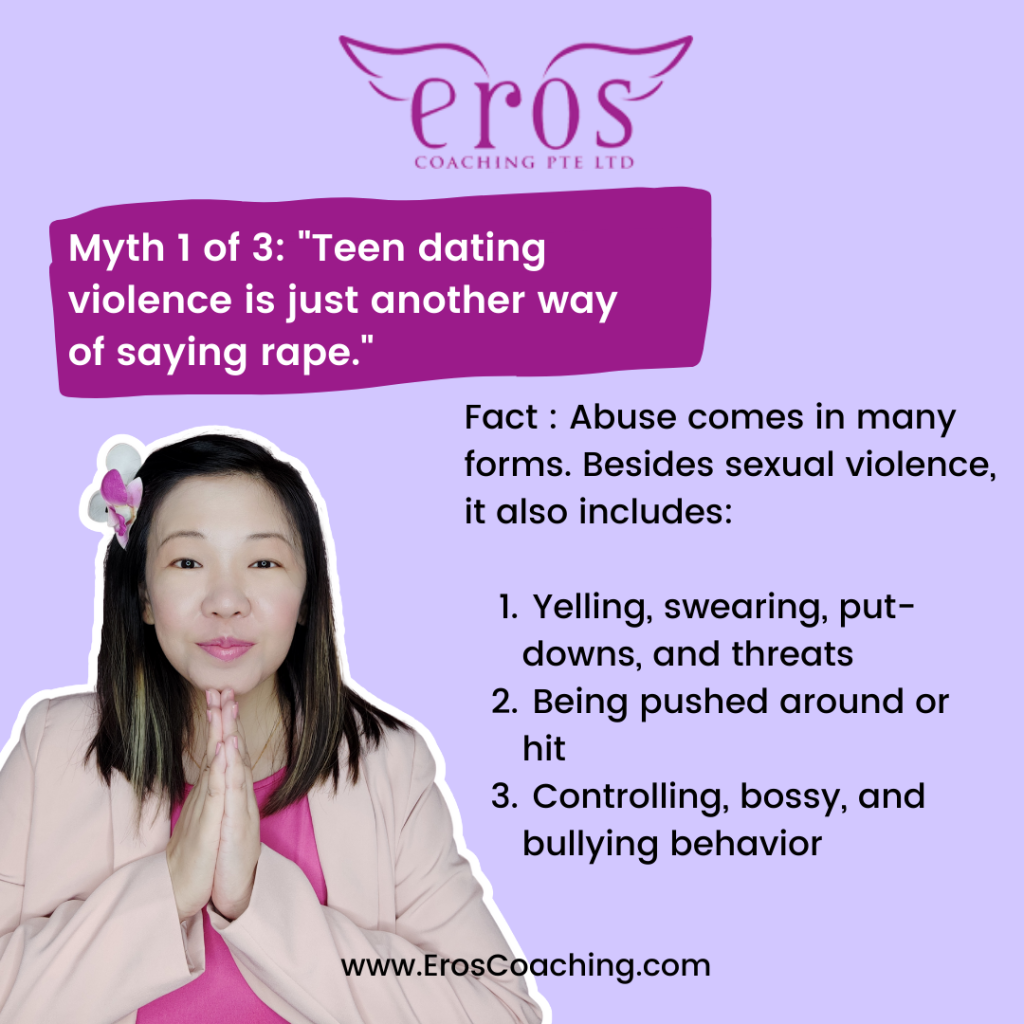
Myth 1 of 3: “Teen dating violence is just another way of saying rape.”
Fact : Abuse comes in many forms. Besides sexual violence, it also includes:
- Yelling, swearing, put- downs, and threats
- Being pushed around or hit
- Controlling, bossy, and bullying behavior
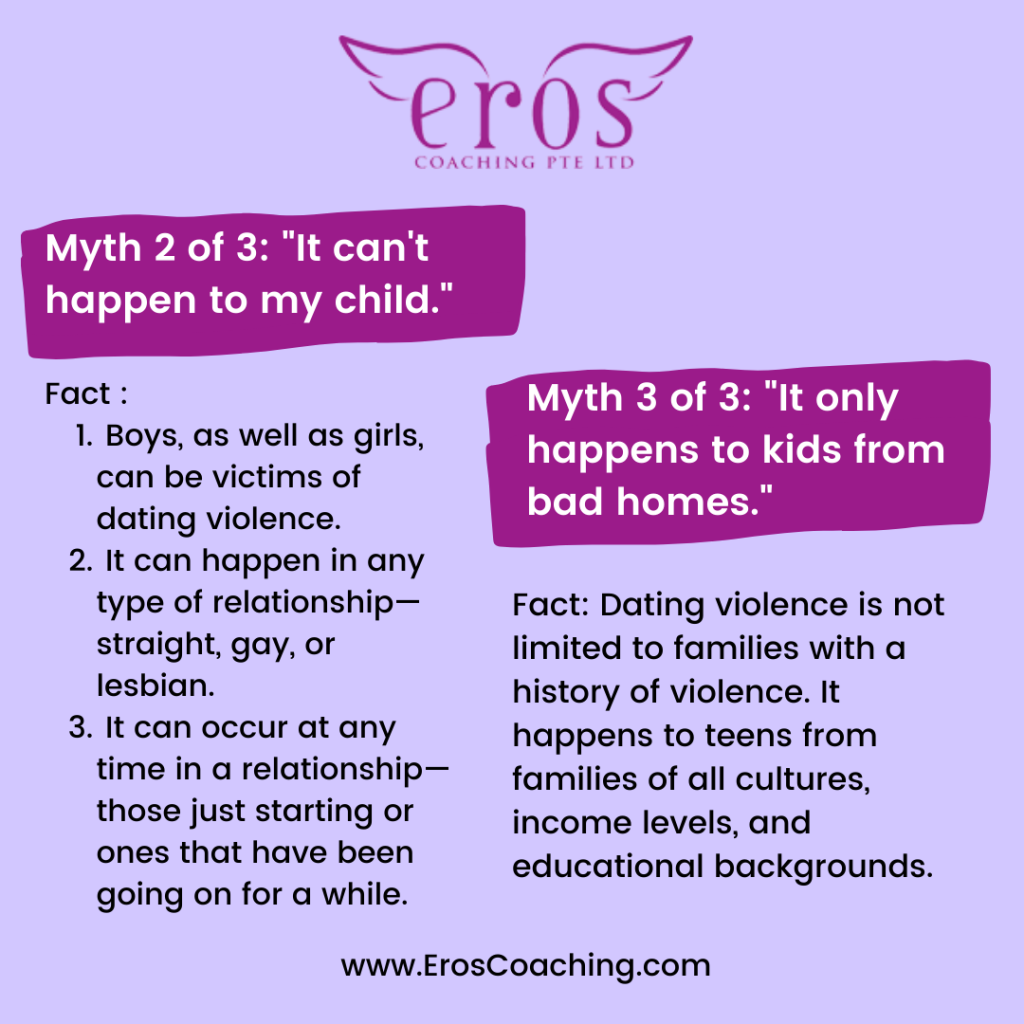
Myth 2 of 3: “It can’t happen to my child.”
Fact :
- Boys, as well as girls, can be victims of dating violence.
- It can happen in any type of relationship—straight, gay, or lesbian.
- It can occur at any time in a relationship—those just starting or ones that have been going on for a while.
Myth 3 of 3: “It only happens to kids from bad homes.”
Fact: Dating violence is not limited to families with a history of violence. It happens to teens from families of all cultures, income levels, and educational backgrounds.
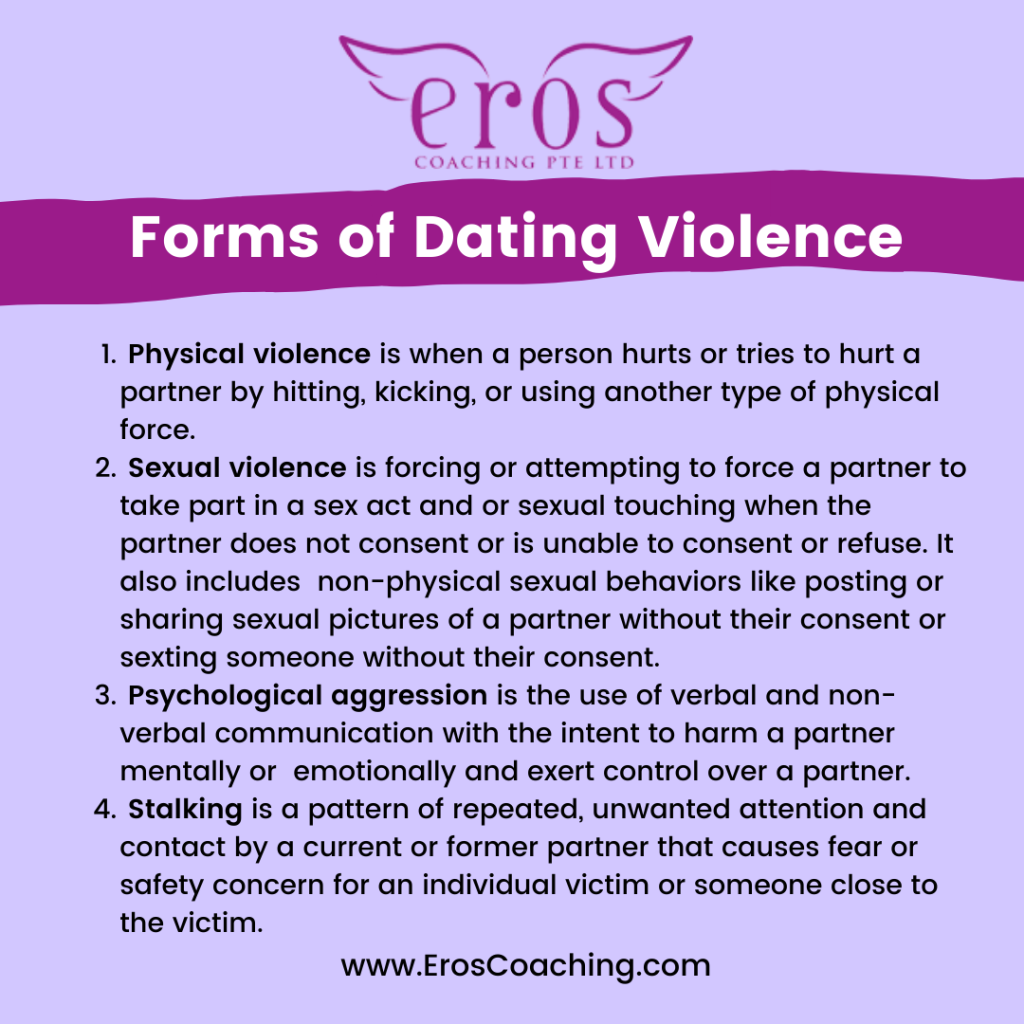
Forms of Dating Violence
- Physical violence is when a person hurts or tries to hurt a partner by hitting, kicking, or using another type of physical force.
- Sexual violence is forcing or attempting to force a partner to take part in a sex act and or sexual touching when the partner does not consent or is unable to consent or refuse. It also includes non-physical sexual behaviors like posting or sharing sexual pictures of a partner without their consent or sexting someone without their consent.
- Psychological aggression is the use of verbal and non-verbal communication with the intent to harm a partner mentally or emotionally and exert control over a partner.
- Stalking is a pattern of repeated, unwanted attention and contact by a current or former partner that causes fear or safety concern for an individual victim or someone close to the victim.
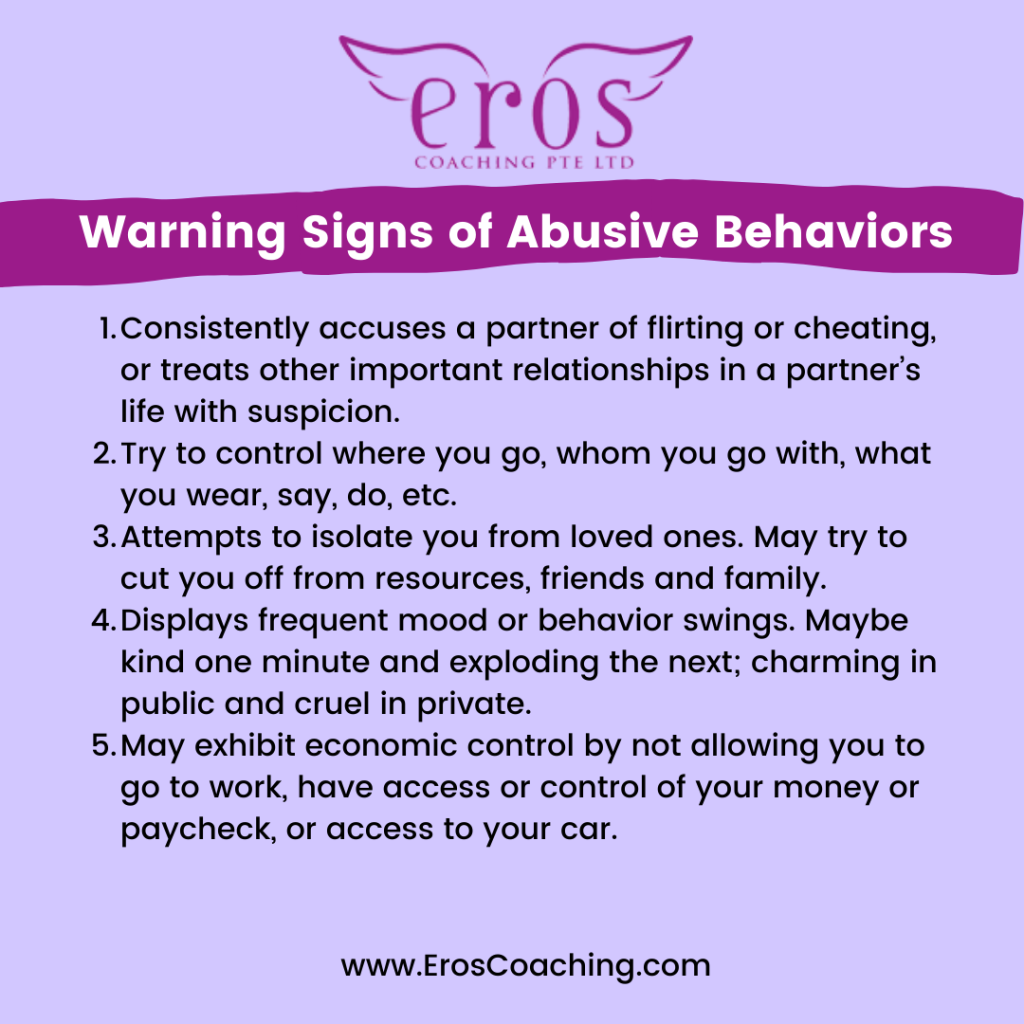
Warning Signs of Abusive Behaviors
- Consistently accuses a partner of flirting or cheating, or treats other important relationships in a partner’s life with suspicion.
- Try to control where you go, whom you go with, what you wear, say, do, etc.
- Attempts to isolate you from loved ones. May try to cut you off from resources, friends and family.
- Displays frequent mood or behavior swings. Maybe kind one minute and exploding the next; charming in public and cruel in private.
- May exhibit economic control by not allowing you to go to work, have access or control of your money or paycheck, or access to your car.
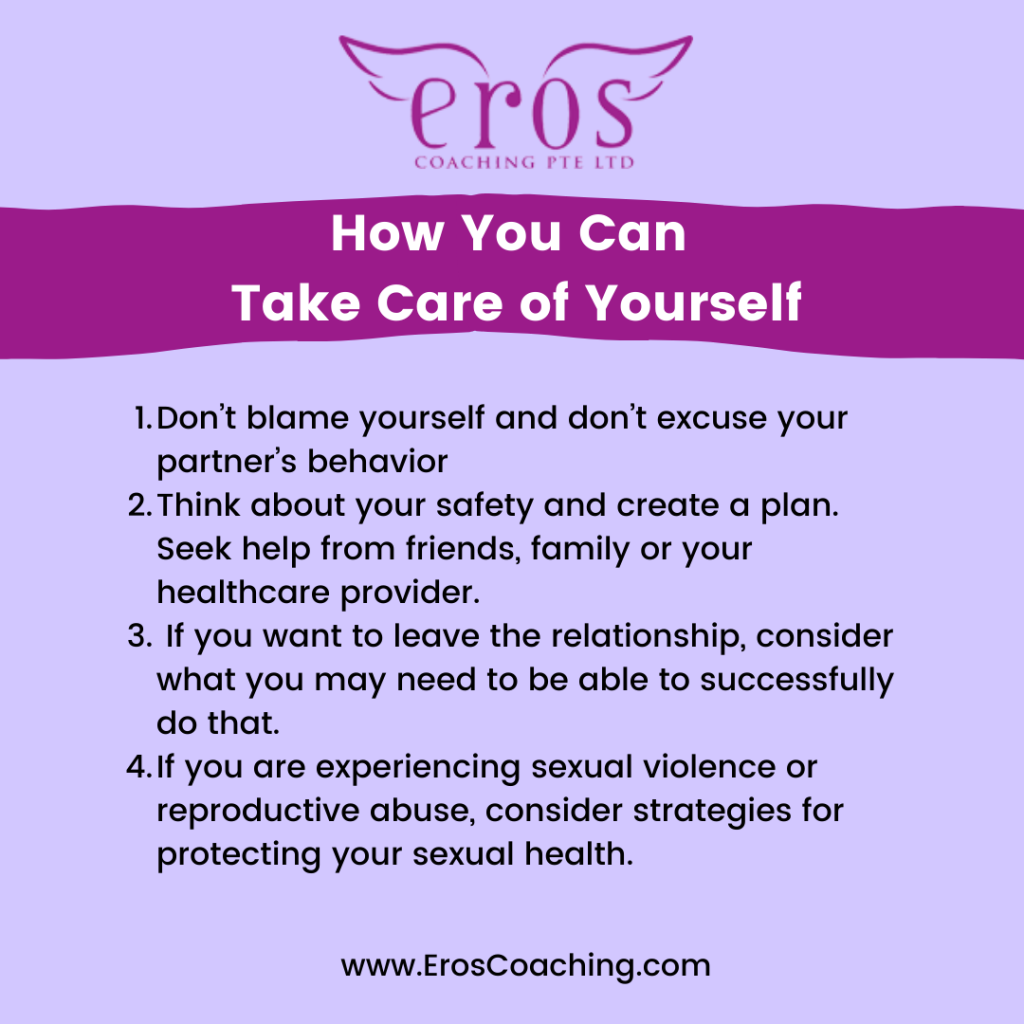
How You Can Take Care of Yourself
- Don’t blame yourself and don’t excuse your partner’s behavior
- Think about your safety and create a plan. Seek help from friends, family or your healthcare provider.
- If you want to leave the relationship, consider what you may need to be able to successfully do that.
- If you are experiencing sexual violence or reproductive abuse, consider strategies for protecting your sexual health.
Subscribe to my mailing list so you never miss a thing.
Enquire about my relationship and sexuality counseling and coaching here.
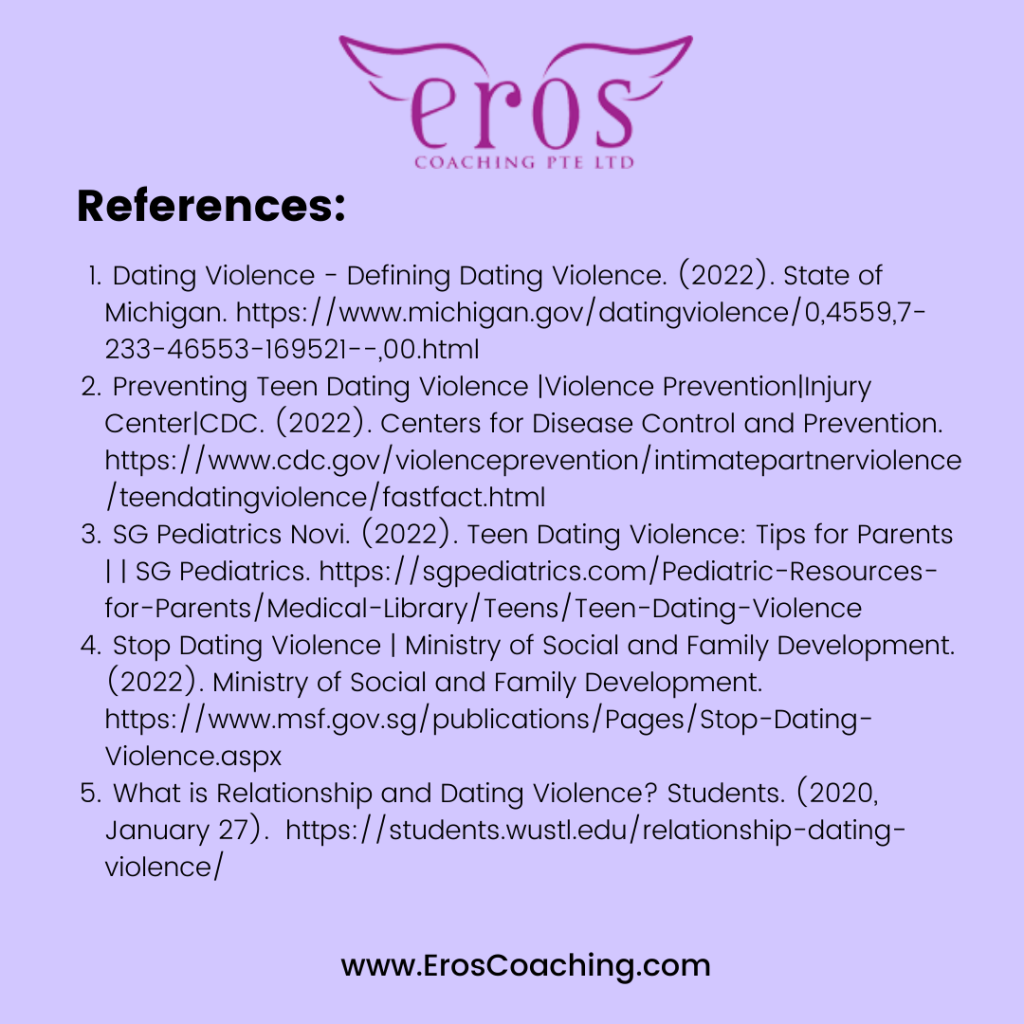
References:
- Dating Violence – Defining Dating Violence. (2022). State of Michigan. https://www.michigan.gov/datingviolence/0,4559,7-233-46553-169521–,00.html
- Preventing Teen Dating Violence |Violence Prevention|Injury Center|CDC. (2022). Centers for Disease Control and Prevention. https://www.cdc.gov/violenceprevention/intimatepartnerviolence/teendatingviolence/fastfact.html
- SG Pediatrics Novi. (2022). Teen Dating Violence: Tips for Parents | | SG Pediatrics. https://sgpediatrics.com/Pediatric-Resources-for-Parents/Medical-Library/Teens/Teen-Dating-Violence
- Stop Dating Violence | Ministry of Social and Family Development. (2022). Ministry of Social and Family Development. https://www.msf.gov.sg/publications/Pages/Stop-Dating-Violence.aspx
- What is Relationship and Dating Violence? Students. (2020, January 27). https://students.wustl.edu/relationship-dating-violence/
About Dr. Martha Tara Lee
 Surrounded by friends who were sexually inhibited and struck by dire lack of positive conversations around sex and sexuality in Singapore, Dr. Martha Tara Lee set out to make a positive difference in embarking on her doctorate in human sexuality before launching Eros Coaching in 2009. Today, she remains dedicated to working with individuals and couples who wish to lead self-actualised and pleasure-filled lives.
Surrounded by friends who were sexually inhibited and struck by dire lack of positive conversations around sex and sexuality in Singapore, Dr. Martha Tara Lee set out to make a positive difference in embarking on her doctorate in human sexuality before launching Eros Coaching in 2009. Today, she remains dedicated to working with individuals and couples who wish to lead self-actualised and pleasure-filled lives.
She also holds certificates in counselling, coaching and sex therapy, and her fourth degree – a Masters in Counselling in May 2018. In practice since 2009, she is the only certified sexuality educator and certified sexuality educator supervisor by the American Association of Sexuality Educators, Counselors and Therapists (AASECT) in Singapore.
Often cited in the media, Dr. Lee is the appointed Clinical Sexologist for Singapore Cancer Society. She was recognised as one of ‘Top 50 Inspiring Women Under 40′ by Her World in July 2010, and one of ‘Top 100 Inspiring Women’ by CozyCot in March 2011. She has published four books: Love, Sex and Everything In-Between, Orgasmic Yoga, From Princess to Queen and {Un}Inhibited.
Martha works with individuals and couples in private coaching sessions, and conducts her own workshops. She takes prides in making sure all her workshops are also fun, educational, and sex-positive. This comes easily to her because even though she is extremely dedicated and serious about her work, she fundamentally believes that sex is meant to be fun, wonderful, amazing and sacred. As such, this serious light-heartedness has shone through again and again. For her full profile, click here. Email her here.

 Become a Patron!
Become a Patron!




